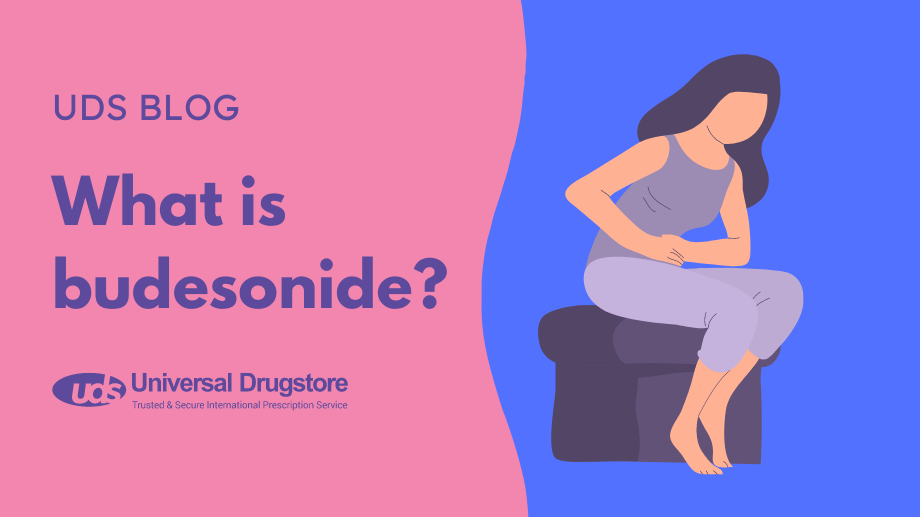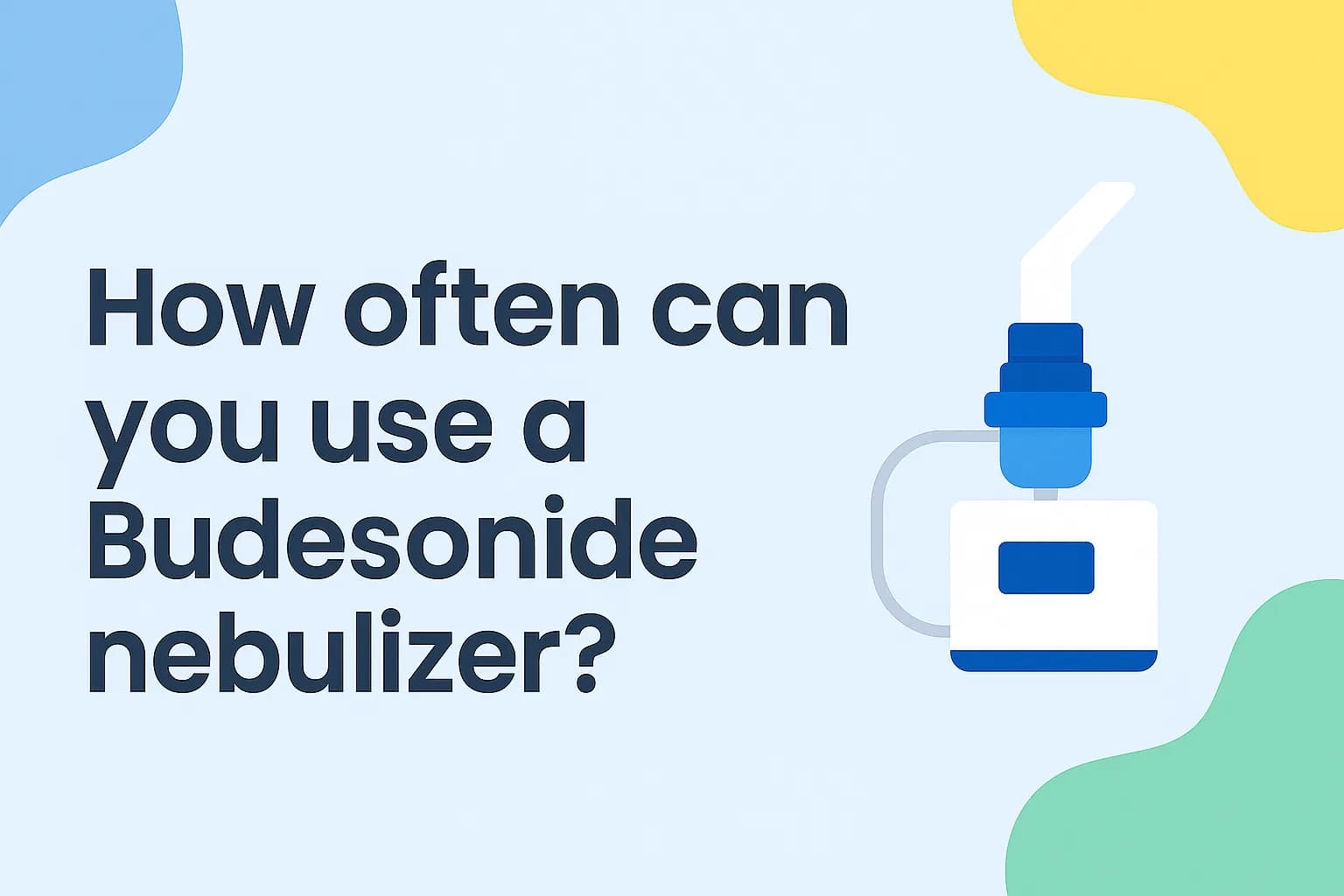What is Budesonide?

Budesonide, sold under brand names such as Pulmicort and Entocort, is a steroid medication available in inhaler, nebulizer solution, pill, nasal spray, and rectal forms. The inhaled form is used for long-term management of asthma and COPD. The nasal spray treats allergic rhinitis and nasal polyps. Extended‑release tablets, capsules, and rectal dosage forms may be used for inflammatory bowel diseases like Crohn’s disease and ulcerative colitis.
Budesonide is generally well tolerated but can cause side effects such as headache, nausea, and respiratory infections. Long‑term use may lead to more serious effects like weakened bones (osteoporosis) or increased infection risk.
Keep reading for more details on budesonide.
How does budesonide work?
Budesonide is a corticosteroid that lowers inflammation and swelling in the body, depending on the dosage form, making it effective for various inflammatory conditions.
What is budesonide used for?
Budesonide treats several inflammatory conditions in different forms:
- Asthma
- Chronic obstructive pulmonary disease (COPD)
- Inflammatory bowel diseases such as Crohn’s disease, ulcerative colitis, and microscopic colitis
- Primary immunoglobulin A nephropathy
- Nasal polyps
- Hay fever and allergies
Side effects of budesonide
Common by dosage form
- Inhaler/nebulizer solution: Cold symptoms (stuffy/runny nose, sore throat, cough), viral upper respiratory infection, nausea, stomach virus
- Nasal spray: Nosebleeds, sore throat
- Oral tablets/capsules: Headache, respiratory infection, nausea, back pain, joint pain, dizziness, upset stomach, gas, stomach pain, vomiting, tiredness, pain
Other less serious effects
- Inhaler/nebulizer: Middle ear infection, oral thrush
- Nasal spray: Cough, nasal irritation
- Oral tablets/capsules: Acne, easy bruising, facial/leg swelling, abnormal hair growth, fast heartbeat, increased appetite, weight gain, nervousness, trouble sleeping
Rare but serious side effects
- Severe allergic reaction: hives, swelling of face/tongue/throat, shortness of breath — seek emergency care.
- Hormone changes: long‑term or high‑dose use can mimic excess cortisol (weight gain, facial/back swelling, limb fat loss) and withdrawal can cause low‑cortisol symptoms (nausea, appetite loss, weakness, diarrhea).
- Vision changes: increased eye pressure, worsening glaucoma, cataracts — report blurry vision or eye discomfort immediately.
- Infection risk: weakened immune system may increase fungal, bacterial, or viral infections — avoid sick contacts and report fever, chills, cough, or breathing trouble.
- Worsening other conditions: diabetes, high blood pressure, osteoporosis, glaucoma, ulcers — close monitoring may be needed.
- Growth delay in children: use lowest effective dose for shortest duration; discuss concerns with a healthcare provider.
Contact your healthcare provider for advice on any adverse effects. Read the Medication Guide each time you fill the prescription. Report side effects to the FDA at 1‑800‑FDA‑1088 or www.fda.gov/medwatch.
Drug interactions
Budesonide may interact with other drugs or supplements. Inform your provider about all you take, including:
- Antacids
- HIV/hepatitis protease inhibitors
- Erythromycin, clarithromycin
- Ketoconazole, itraconazole
- Cyclosporine
- Cimetidine
- Grapefruit juice
This list may not be exhaustive.
Warnings and precautions
Do not take budesonide if allergic to it or inactive ingredients. Inhalation powder contains milk proteins—avoid if allergic. Inhalers are not for asthma attacks; keep a short‑acting inhaler on hand.
Tell your provider if you have:
- Diabetes
- Active infection or tuberculosis exposure
- History of chicken pox or measles exposure
- Stomach ulcers
- Liver disease
- Glaucoma or cataracts
- Osteoporosis
- High blood pressure
- Adrenal insufficiency
- Upcoming surgery
- Pregnancy or planning pregnancy
- Breastfeeding or planning to breastfeed
How long until budesonide works?
- Inhalers: Begins in 24–48 hours; full effect in 2–6 weeks.
- Nasal spray: Improvement in 1–2 days; maximum benefit by 2 weeks.
- Rectal forms: May feel better in a couple of weeks; full effect can take a month or more.
Is budesonide the same as albuterol?
No. Budesonide is a corticosteroid reducing airway inflammation for daily control. Albuterol is a bronchodilator used for acute relief by relaxing lung airways during asthma attacks.
Related Medications
- Entocort EC (budesonide)
- Entocort Enema (budesonide)
- Pulmicort Flexihaler (budesonide)
- Rhinocort AQ Nasal Spray (budesonide)
- Pulmicort Respules (budesonide)
- Uceris (budesonide)
- Entocort Enema (budesonide)
- Tarpeyo (budesonide)
Sources
- Budesonide inhaled (Rx). Medscape. Accessed July 16, 2024.
- Budesonide rectal (Rx). Medscape. Accessed July 16, 2024.
- Budesonide intranasal (Rx, OTC). Medscape. Accessed July 16, 2024.
- Budesonide (Rx). Medscape. Accessed July 16, 2024.





